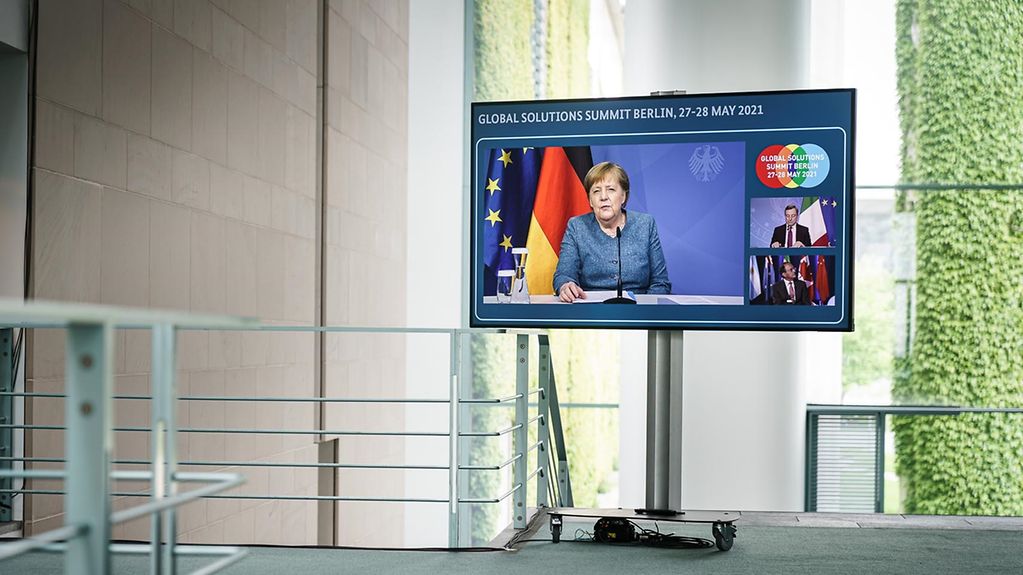Global Solutions Summit
“The world shares a common destiny,” declared Chancellor Angela Merkel, as she opened the second day of the Global Solutions Summit in Berlin by video link. Under the banner “The Great Realignment”, representatives of the science and research community, the political level, the business community, and civil society discussed the main challenges of the post-pandemic era.
2 min reading time

On Friday, Chancellor Angela Merkel stressed that the many and diverse challenges of the future can only be successfully addressed if the international community works together.
Photo: Bundesregierung/Denzel
What is the Global Solutions Summit?
The Global Solutions Summit is an international conference in the context of the G20, which is held once a year with a view to discussing proposed solutions to pressing global problems. The policy recommendations address primarily decision-makers within the G20, G7 and international organisations.
As Chancellor Angela Merkel said in her video message, “Multilateralism is not automatic. Suitable formats are needed if we are to understand and accept multilateralism as a tool in our efforts to achieve common progress, and if we are to breathe life into the concept.” The Global Solutions Summit is one such format.
What issues were on the agenda?
Under the banner “The Great Realignment”, the major issues of our time were discussed again this year. “From global health to climate change mitigation and environmental protection, not forgetting sustainable development – there is no shortage of major challenges facing us all worldwide,” said Angela Merkel.
That is true not least with a view to the COVID-19 pandemic, which is a particular test for international cooperation. But the Chancellor is certain that, “If the twenty leading industrial nations cooperate closely, they can achieve a great deal for the common good at global level.”
To give the poorest countries access to vaccines, treatments and tests, the German Federal Government is supporting the ACT-Accelerator and its vaccination pillar COVAX with a contribution of 2.2 billion euros.
Where does the Chancellor see a need for action?
Angela Merkel sees a global need for action not only to master the pandemic, but also to make our societies and economies more sustainable. “Here, I expect a strong signal from the G20, especially since G20 states together generate about 80 per cent of global greenhouse gas emissions.”
To make climate action an economic success factor, appropriate incentives will be needed – like a “genuinely global CO2 price”. The same applies with a view to free and fair trade, which “also has much to do with sustainable development”. This makes reforms to strengthen the World Trade Organization all the more important.
Who took part this year?
The participants in the Global Solutions Summit, who meet once a year in Berlin around the middle of every G20 Presidency, include renowned experts from thinktanks, research organisations, governance, the business community, and civil society.
This year, as well as the Chancellor, Federal Finance Minister Olaf Scholz, Federal Environment Minister Svenja Schulze, Federal Health Minister Jens Spahn, Federal Justice Minister Christine Lambrecht and Lars-Hendrik Röller, who heads the Economics and Finance Directorate-General at the Federal Chancellery, took part on the German side.
You will find more information about the Global Solutions Summit here.